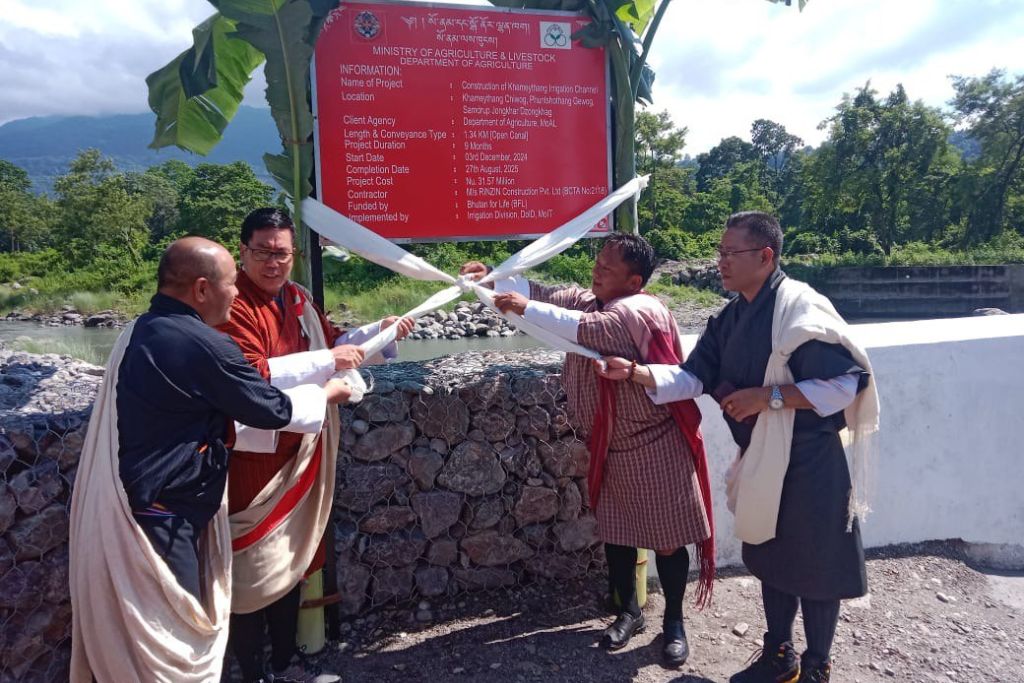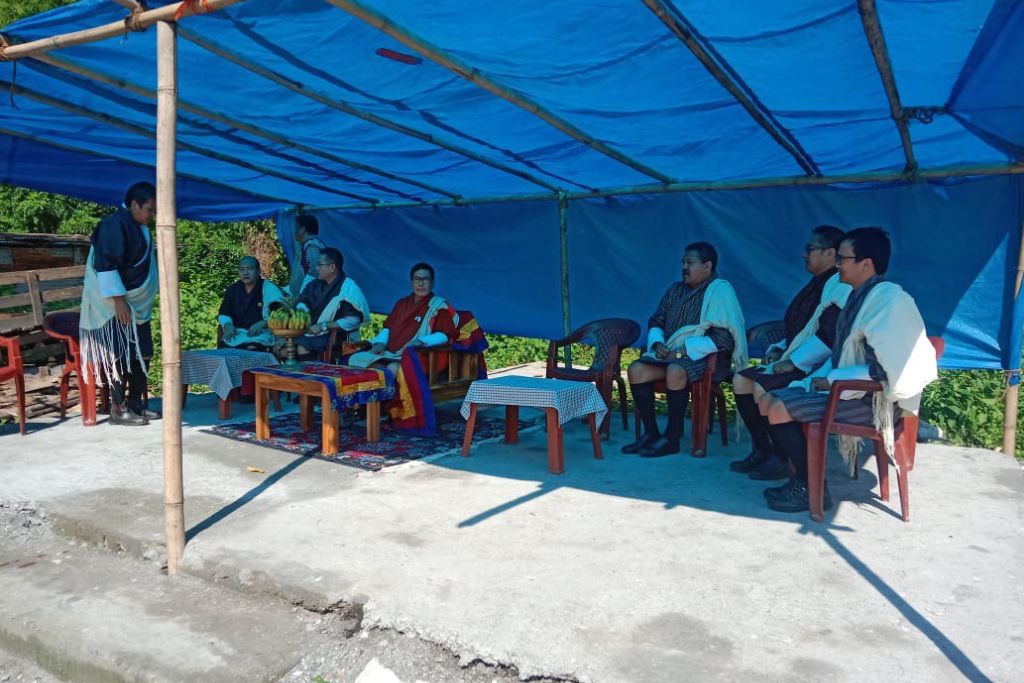Khamaedthang, Samdrup Jongkhar, August 16, 2025. The commissioning of the newly constructed Climate-Smart Irrigation Channel at Khamaedthang, Samdrup Jongkhar, under Jomotshangkha Wildlife Sanctuary (JWS), was held today, marking a major milestone in improving water security, agricultural productivity, and climate resilience for local farmers.
Initiated by the Department of Agriculture under the Ministry of Agriculture and Livestock with technical support from the Irrigation Division, Department of Infrastructure Development, the project was implemented with a total fund of Nu. 32.15 million from Bhutan for Life. The event was graced by Dasho Drungpa of Samdrup Choling Dungkhag, Samdrup Jongkhar as the chief guest, followed by the official handing over of the infrastructure to the Khameythang community.


For decades, Khameythang farmers have struggled with seasonal water shortages. During the monsoon, temporary water sources were often washed away by severe flooding, leaving large portions of fertile paddy fields abandoned. Further, the irrigation water was inaccessible for winter cropping due to the low water level at the source. This not only reduced crop yields but also threatened household food security and livelihoods.
The newly built irrigation channel spans 1.44 km and will provide a reliable water supply to 213.5 acres of wetland and 40 acres of dryland, directly benefiting 87 households (67 male-headed and 20 female-headed). With a steady water supply, farmers can now cultivate their full landholding, improve crop yields, and reduce vulnerability to unpredictable rainfall.
The newly commissioned Climate-Smart Irrigation Channel is equipped with robust intake structures having 51 meters long fixed weir with a settling basin, designed and constructed entirely by national experts, showcasing the country’s growing technical capacity. Built with concrete lining to prevent seepage especially in sandy soil areas and to mitigate the damages from stormwater along the canal alignment, it represents advancement over traditional earthen canals. The system minimizes sedimentation, seepage losses, improving water delivery efficiency while ensuring greater reliability and resilience to climate change impacts. Moreover, the farmers can now access irrigation water throughout the year, enabling crop intensification to boost their income. Environmental friendly features, including flood mitigation structures, and diversion walls, ensure irrigation benefits without compromising river ecosystems, maintaining continuous water flow to support aquatic life.
To ensure sustainability, the Community Water User Group will oversee operation and maintenance of the infrastructure. Further, farmers will be trained on climate-smart agricultural practices, which will enhance the project’s impact on household incomes, food security, and environmental stewardship.

